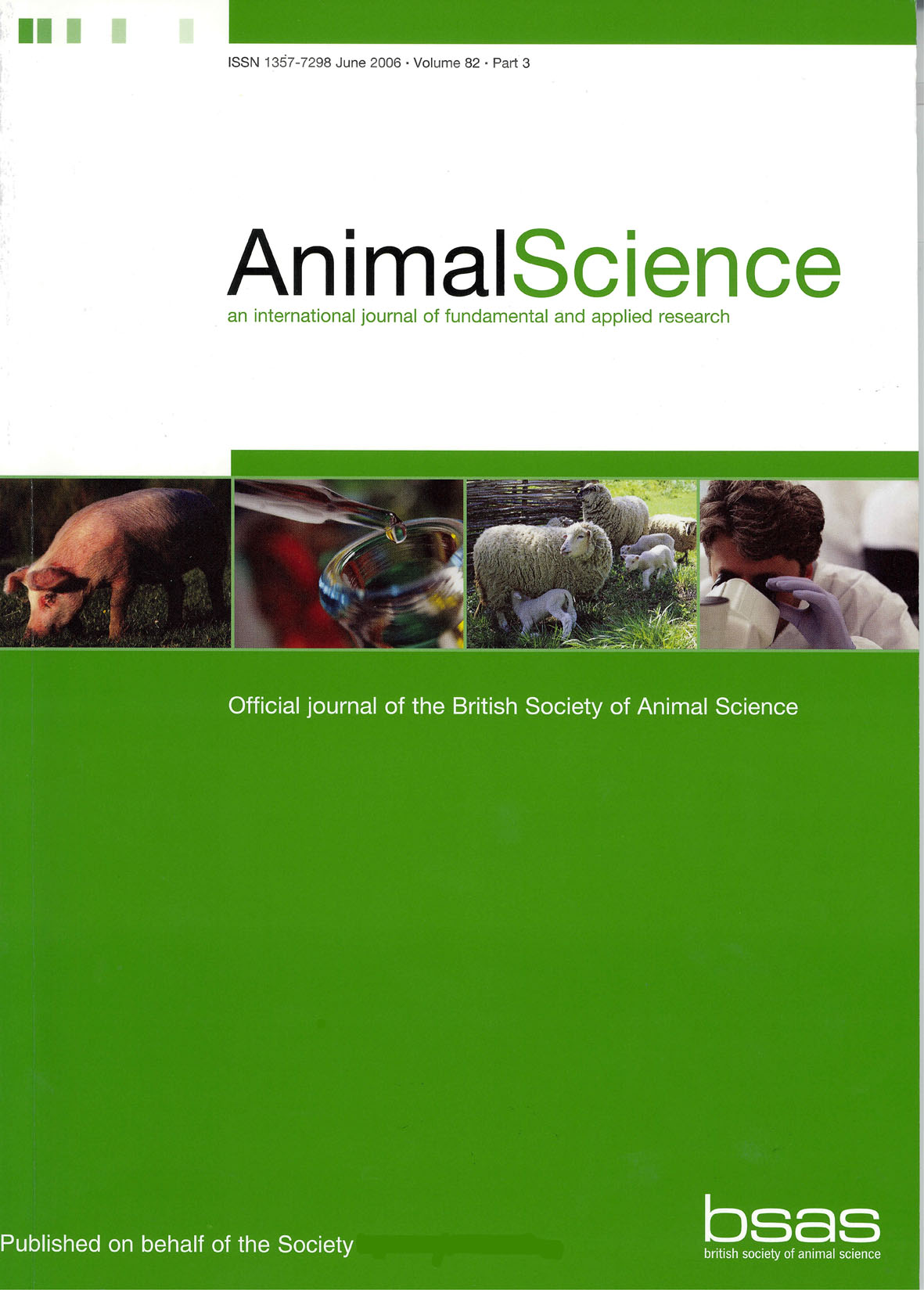Article contents
Effects of plane of nutrition, diethylstilboestrol implantation and slaughter weight on the performance of Israeli-Friesian intact male cattle
Published online by Cambridge University Press: 02 September 2010
Summary
The effects of two levels of energy intake, ad libitum and 80% of ad libitum, of diethylstilboestrol implantation and no such treatment, and of two slaughter weights (‘450’ and ‘490’ kg), on the performance of Israeli-Friesian intact male cattle were studied.
Average daily gain was 1130 g and 959 g and daily carcass gain was 630 g and 553 g for animals on ad libitum and 80% of ad libitum energy intake, respectively. Average daily gain was 1038 g and 944 g and daily carcass gain was 595 g and 562 g, for diethylstilboestrol-treated and untreated animals, respectively. Slaughter weight had little effect on rate of gain.
The differences in conversion ratio of ME into live weight between treatments were small. Diethylstilboestrol-treated animals were slightly more efficient.
The non-implanted animals on the restricted plane of nutrition and which had been slaughtered at ‘490’ kg had a significantly higher dressing percentage, a higher percentage of fat trim and less bone than animals slaughtered at ‘450’ kg body weight on both levels of nutrition.
Among the diethylstilboestrol-implanted male calves, however, the animals fed at 80% of ad libitum feed and killed at ‘450’ or ‘490’ kg live weight had significantly more fat trim in the carcass and less bone than the animals fed ad libitum.
- Type
- Research Article
- Information
- Copyright
- Copyright © British Society of Animal Science 1976
References
- 4
- Cited by


